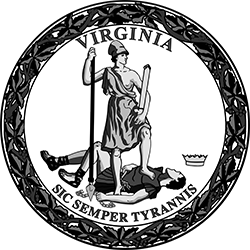Improving Virginia’s Career Readiness System: Recommendations from the OECD (Brief #1)
Study Background
The international, non-partisan Organisation for Economic Co-operation and Development (OECD) recently conducted an in-depth review of career readiness activities in K-12 schools in Virginia. The study is part of the OECD Career Readiness project, which is examining and benchmarking career readiness practices across the globe in an effort to help governments, schools, employers, and other stakeholders better prepare students to enter the workforce. The final report was published on December 1, 2023 and is available here. This brief provides an overview of the study and includes OECD’s recommendations for improving the Commonwealth’s career readiness system.
Career readiness activities, in the form of career guidance, career and technical education (CTE), work-based learning (WBL), and other experiences, help prepare K-12 students to enter the workforce. They have the potential to improve employment outcomes for individuals and, in turn, strengthen the economy. Historically, there has been a lack of evidence on how to guide students effectively, efficiently, and equitably to ensure better employment outcomes, but this is improving. OECD is addressing this through their longitudinal research on career readiness policy and practice.
In the Fall of 2022, OECD approached Virginia about conducting a pilot study. The Virginia Office of Education Economics (VOEE) was tasked by the Secretariat of Education with coordinating the study with OECD, including a site visit to Virginia in the spring of 2023. The Virginia Department of Education (VDOE) and the State Council of Higher Education for Virginia (SCHEV) also contributed to the project.
The final, comprehensive study includes both quantitative and qualitative research. OECD conducted an extensive literature and policy review to understand the Commonwealth’s career readiness system on paper. To understand how the system operates in practice, they conducted interviews and administered two surveys. As part of their site visit to Virginia, OECD interviewed key stakeholders, including policymakers, business leaders, teachers, and students. They conducted additional interviews virtually, including with Secretary of Education Aimee Rogstad Guidera.
OECD surveyed students and young adults about their career readiness experiences. An outside vendor surveyed approximately 1,000 young adults (19- to 26-year-olds). VDOE and VOEE facilitated a similar survey of almost 10,000 public high school students (10th and 11th grade).
The final OECD report describes Virginia’s career readiness system in depth. It presents the results of the two surveys, and it examines the Commonwealth’s system along the dimensions of effectiveness, efficiency, and equity. It highlights what the Commonwealth is doing well and makes recommendations for improvement by benchmarking Virginia against other OECD countries and providing international examples of best practice. This brief, the first of a series, includes OECD’s seven recommendations for improving Virginia’s career readiness system. Future briefs will review other sections of the report.
Recommendations
OECD was impressed by the Commonwealth’s commitment to and implementation of career readiness activities. The report describes Virginia’s many strengths, while also offering the following seven recommendations for improving the career readiness system.
Virginia should consider:
- Standardizing and monitoring the use of career readiness tools, including Academic and Career Plans (ACP), in K-12 schools.
- Developing a new K-12 career readiness framework or updating the existing one, with an emphasis on career readiness activities strongly tied to better employment outcomes.
- Increasing the number of school counselors and teachers, including career and technical education (CTE) teachers, by easing regulations into teaching or through other means. Virginia should simultaneously ensure that staff receive high-quality training around career guidance.
- Encouraging and facilitating collaboration between schools and employers to provide better work-based learning (WBL) opportunities.
- Providing students and families with better information about careers in the skilled trades to increase interest.
- Focusing more on parity in career readiness policy and targeting additional resources and support towards students from disadvantaged groups to improve labor market outcomes and narrow disparities.
- Using digital resources to provide more diverse career readiness experiences to students, regardless of geography.


